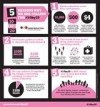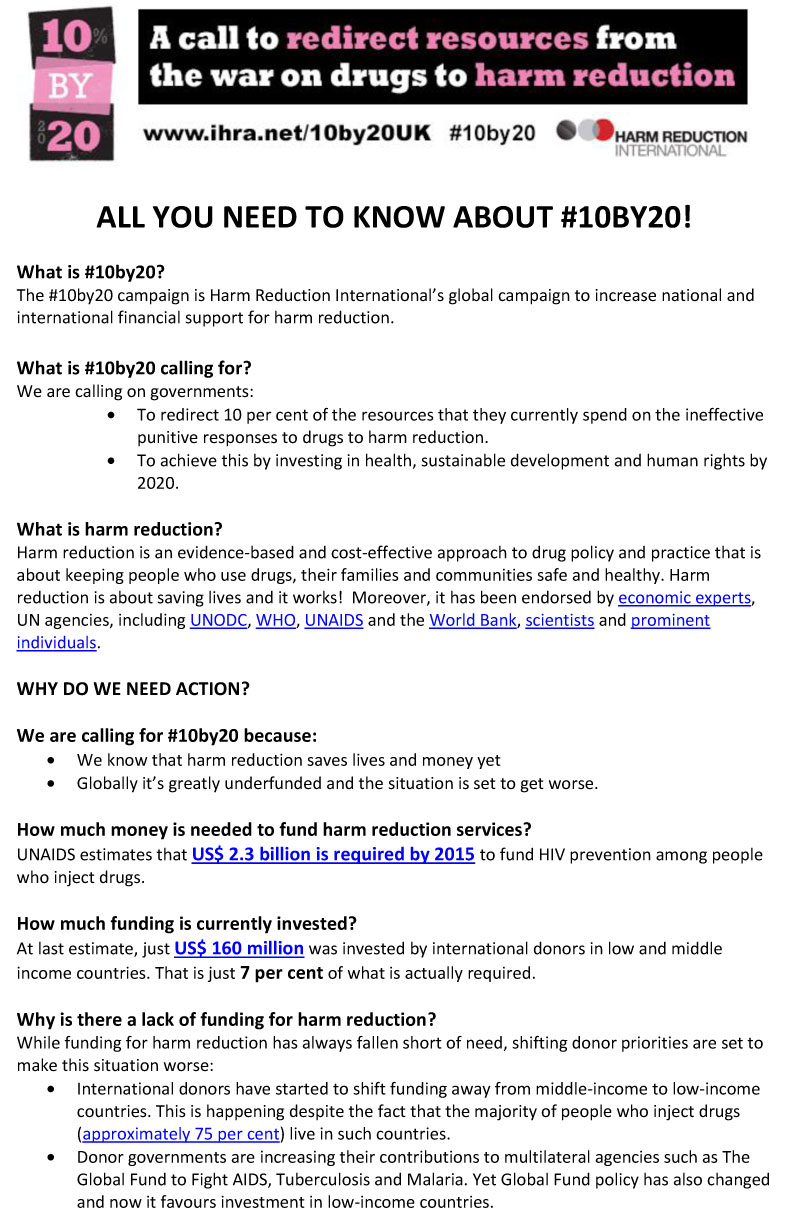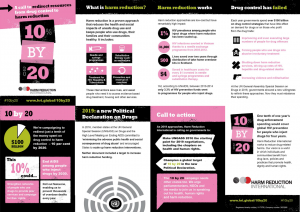Why we need action?
Harm reduction is an evidence-based and cost-effective approach to drug policy and practice that is about keeping people who use drugs, their families and communities safe and healthy. Harm reduction is about saving lives and it works! Yet many countries still do not provide harm reduction services and global funding for it amounts to just $160 million – only 7 per cent of what is needed. By contrast, each year governments spend over $100 billion waging an ineffective war on drugs.
Why now?
2016 is a watershed year for drug policy reform and furthering health and human rights approaches for people who use drugs. The first UN General Assembly Special Session (UNGASS) on drugs in 20 years will take place. At the last UNGASS in 1998, global leaders pledged ‘a drug free world’. Seventeen years later targets such as this have driven an international war on drugs, fuelled human rights violations and furthered HIV and HCV epidemics. The upcoming UNGASS gives us once in a generation opportunity to call on governments to stand up for harm reduction, health and human rights of its citizens instead of punishing them.
What are we calling for?
We are calling on governments:
- To redirect 10 per cent of the resources that they currently spend on the ineffective punitive responses to drugs to harm reduction.
- To achieve this by investing in health, sustainable development and human rights by 2020.
What we can achieve if we take action?
With funding equivalent to just 10 cents for every dollar spent on enforcement we could:
- Cover annual HIV and hepatitis C prevention need for people who inject drugs. Globally. Twice over.
- Pay for enough naloxone to save thousands upon thousands of lives every year from opiate overdose.
- Ensure that we can respond to new challenges with effective advice, healthcare and emergency responses.
- Strengthen networks of people who use drugs to provide peer services and campaign for their rights.
What will happen if we don’t act now?
If the adoption of harm reduction in new countries continues at the current pace, it will be 2026 before every country in need has even one or two harm reduction programmes operating (like opioid substitution therapy or needle and syringe exchange programmes) or has endorsed harm reduction within national policy. In the meantime we will lose thousands if not millions of lives.
What can you do?
Watch out this space for information on #10by20 global day of action
that will take place at the International Harm Reduction Conference in
Kuala Lumpur!’ In the meantime to find out more about HRI’s work on
#10by20 campaign follow us on Twitter.




